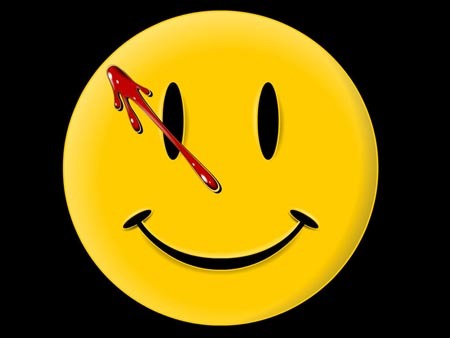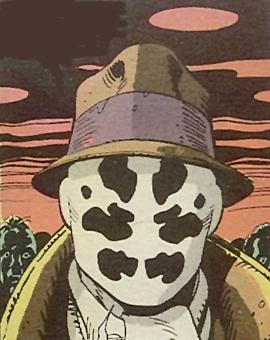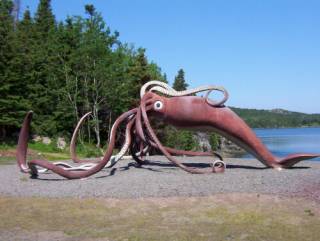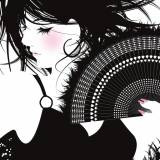End? Nothing ever ends, Adrian
By Lies 17 Comments

So I recently picked up a copy of the Watchmen trade paperback (What does that term even mean, anyways?) from a local library. Blew through it in about a day and a half, and, well, I'm gonna write about it. Usually I use this space to write exclusively about videogames or the culture surrounding them, but I doubt you'll begrudge me this small excursion.
Watchmen tells a good story, there's no denying that. However, similar to Sweep's experience, I must say that perhaps I was expecting somewhat more from the claims surrounding this graphic novel. Is the comics industry so sorely lacking in talent that a tale that manages to weave a competent universe and believable characters is so noticeable? Is this industry really in straits so dire that a well-told story is so incredibly notable? I find it a question that intrigues me, but having never really known much about that culture, I couldn't comment for sure on whether I'm right or not.

Never Compromise, even in the face of Armageddon
Rorschach is really the only true standout though. Manhattan has some interesting thematic elements to him, but he's never really utilized to his full potential. Nite Owl starts out fantastic, shown as an aged relic, who really only ever fit in as his costumed alter-ego, but as his storyline progresses and he gets entangled with Laurie, he becomes disappointingly boring and one-dimensional. Laurie is blank and undeveloped, really with her only purpose being to act as a foil to Manhattan's removed demeanor. The Comedian is the other standout, a well-realized caricature of the American Spirit, alternatively heroic and dastardly. Fighting to supposedly save Vietnam, yet at the same time, shooting and killing a Vietnamese woman carrying his child. The fact that he ends up working for the US government is a critique of our schizophrenic foreign policy that applies even today, although I suspect Moore had shadows of Vietnam in his mind more than spectres of the future.
Of course, Vietnam to the Watchmen world is quite different than what it means to us today. In that world, the US won the war handily, with the strategic ace of Dr. Manhattan. Richard Nixon is re-elected to a third term, and the Cold War takes on a decidedly different tone. The alternate history is really entertaining, and seeing Nixon giving a victory speech in Saigon, or in a nuclear bunker with his hand on the button is, well, fun. It's interesting to see what things could have been.

The plot itself is quite nicely executed, stringing you along with Rorscach's theories for the majority of the book, until the twist is revealed at the end- which thankfully, broke the cliche of the villain lecturing the heroes about his plan, giving them just enough time to stop it. The climax is great, bringing all the characters and disparate plot threads together in one final hurrah. I felt genuinely sad after Manhattan did his thing, and almost angry to see everyone else continuing on with their normal lives, despite what they knew. The book wraps up, and somehow, it all makes sense, even if it feels wrong.
In the grand scheme of things, I really enjoyed Watchmen, but I have to wonder why it's so critically hailed. Yes, it's a great story with some truly compelling characters and settings. But it's nothing more. Maybe, for the comics industry, that's enough to be revolutionary. I don't know. But I do know that I greatly enjoyed the book, and I'll be looking forward to watching the Watchmen on a big screen this March. Let's hope they can do it justice.
